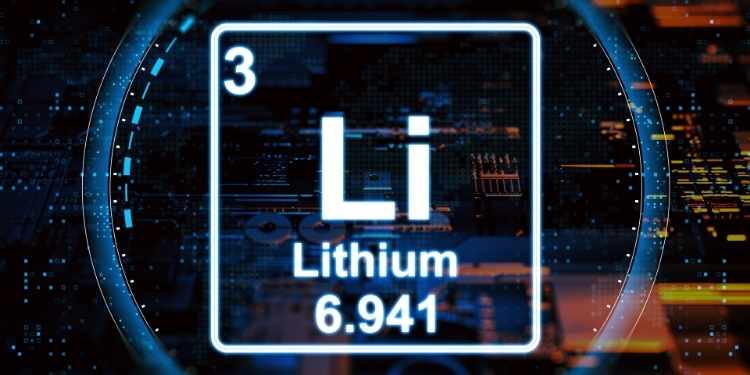Recently, we’ve been receiving questions about seemingly “good” contaminants, like lithium. We believe that you should be in control of your water, you should know what is in your water, and you should understand what you are consuming.
That’s why we went to our resident chemist – Eldon Muehling – to get more information.

Is There a Risk of Drinking Water That Contains Lithium?
By Eldon C. Muehling
It was reported in the March 3rd issue of the Water Quality Association (WQA) Update that a recent United States Geological Survey (USGS) survey report shows high levels of lithium in 45% of public-supply wells. At first glance, I was concerned about how it might affect a person’s health.
Upon investigating this issue further, I learned that several studies have been conducted on this issue and found that, contrary to my first thought, the results from some are mostly very good. Some people are even advocating that lithium should be added to our drinking water for some of its benefits!
In this article, we will look at whether that’s really a good idea.
The History and Uses of Lithium
Lithium is an chemical element. It gets its name from the Greek word “lithos” which means stone. This is partly because it is present in trace amounts in virtually all rocks. It is mostly used to produce ceramic, glass and long lasting batteries, even though they are more dangerous.
Heat released during lithium cell failure can damage nearby electrical cells, releasing even more heat in a chain reaction known as thermal runaway. In some lithium batteries, combustion can separate fluorine from lithium salts. They should never be incinerated and extra care needs to be taken in disposing of them.
Lithium is the very lightest metal, number three on the periodic chart. Its valence is one, like hydrogen. Lithium compounds are known as alkali salts and are approved by the FDA as a prescription psychiatric medication. These products should NOT be taken unless prescribed by a medical doctor as different people react differently to it. Some people are quite allergic to lithium salts.
For awhile though, consuming lithium was marketed to the general public. It is a fact that 7-Up, the 85-year old citrus soft drink, once started out by the less-catchy name “Bib-Label Lithiated Lemon-Lime Soda”. It was originally packed with these mood-enhancing salts. So you see, Coca-Cola isn’t the only soda that stared out as a pharmaceutical elixir.
The FDA banned the use of lithium in beer and soft drinks in 1948.
Lithium carbonate is one of the lithium salts approved for medical uses. It is taken orally and is primarily used to treat bipolar disorders and other major depressive disorders. We do not know exactly how it works but it works on the central nervous system. It helps people to have better control over their emotions, supposedly if added to drinking water it would help to lower the rates of violent crime! That is a happy thought, but adding it to drinking water would also medicate people who do not need it, and it could cause overdoses and allergic reactions.
The Side Effects of Consuming Too Much Lithium
Here are some of the side effects of consuming too much lithium: headache, nausea or vomiting, diarrhea, dizziness or drowsiness, changes in appetite, hand tremors, dry mouth, increased thirst and possibly others.
While these are not fatal symptoms…who needs them? Most people do not!
In Conclusion
Elementary lithium is not very water soluble but it does react with water. In fact it does so intensely, forming lithium hydroxide (LiOH) and highly flammable hydrogen. (H2)
I would not recommend adding it to public drinking water. We do not want to mass medicate and open people up to the risks of the side effects.
We believe purity is key.
If you’re concerned about lithium in your water, the good news is that lithium compounds have very high boiling points and because of this, distillation should easily remove them virtually 100%. Pure water is still the best and always will be.
Do you want to remove contaminants from your water? Check out our home water distillers.



Leave a Reply